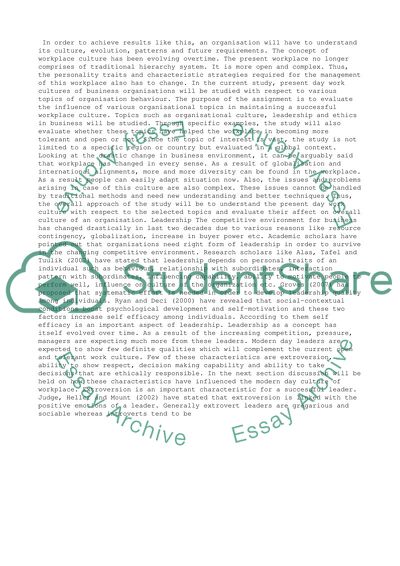Cite this document
(“Organisational culture, leadership and ethics in maintaining a Essay”, n.d.)
Organisational culture, leadership and ethics in maintaining a Essay. Retrieved from https://studentshare.org/management/1485872-workplaces-nowadays-are-more-open-and-toleranty-do
Organisational culture, leadership and ethics in maintaining a Essay. Retrieved from https://studentshare.org/management/1485872-workplaces-nowadays-are-more-open-and-toleranty-do
(Organisational Culture, Leadership and Ethics in Maintaining a Essay)
Organisational Culture, Leadership and Ethics in Maintaining a Essay. https://studentshare.org/management/1485872-workplaces-nowadays-are-more-open-and-toleranty-do.
Organisational Culture, Leadership and Ethics in Maintaining a Essay. https://studentshare.org/management/1485872-workplaces-nowadays-are-more-open-and-toleranty-do.
“Organisational Culture, Leadership and Ethics in Maintaining a Essay”, n.d. https://studentshare.org/management/1485872-workplaces-nowadays-are-more-open-and-toleranty-do.


